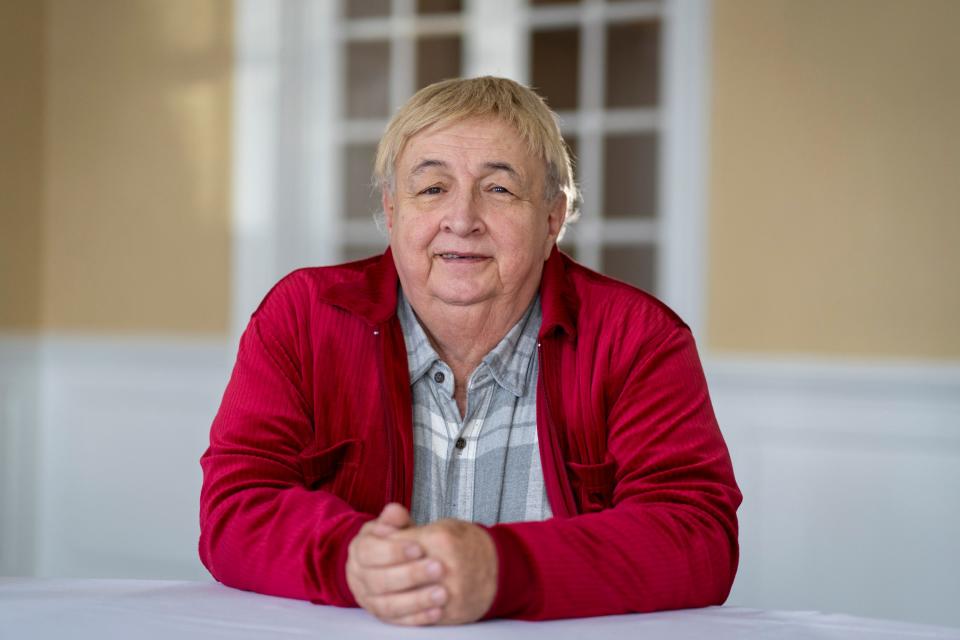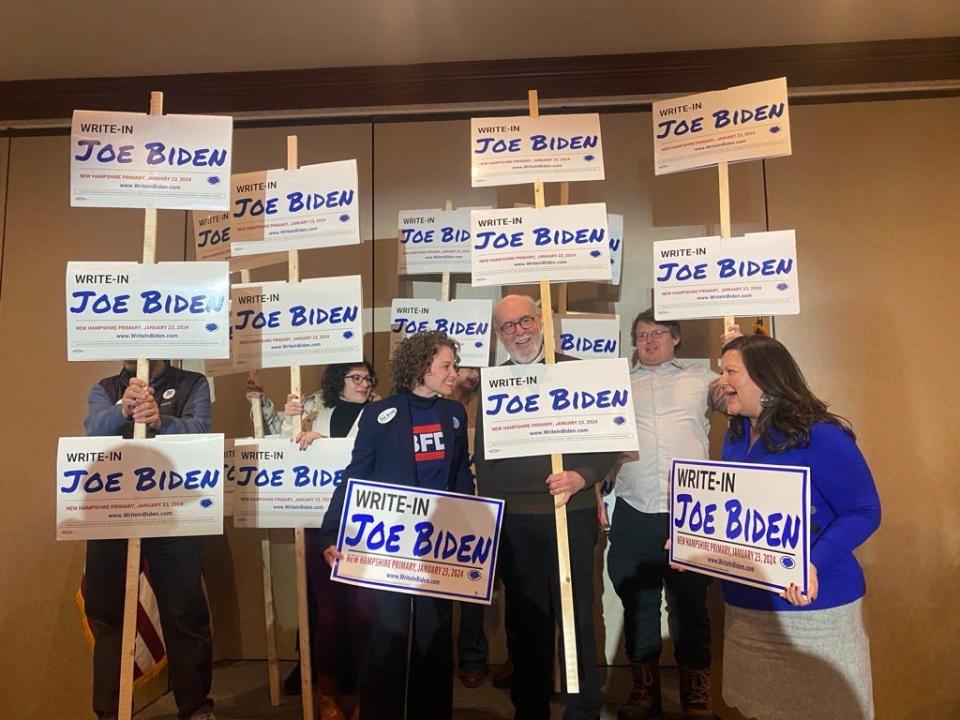Splaine: Why our New Hampshire primary won, again
New Hampshire's law says it clearly, that our first-in-the-nation presidential primary is to be held on a date "which is 7 days or more immediately preceding the date on which any other state shall hold a similar election." Our secretary of state is required to follow that law, and has done it well for decades.
It works.
Through the years, numerous states and both the Democratic and Republican national political parties have tried to come up with schemes to end our lead-off status, but our law has stood the test of time. They haven't been able to get around those words.

In the most recent election cycle, national Democratic Party leaders attempted to stop New Hampshire from being first. They tried to forbid candidates from filing for president here. But several did. They even declared that they wouldn't allow our delegates to attend the August Democratic National Convention. But they will.
Two weeks ago, after losing their battle with New Hampshire Democratic Party Chair Ray Buckley and other leaders, the national Democratic Party admitted it failed in its nearly two-year crusade to disenfranchise our voters. They will seat our delegates at the convention. Our state law was repeatedly referred to as the reason for that failure.
More: NH's delegates for Biden will count in 2024. But will NH primary be first in 2028?
I've been involved in every New Hampshire presidential primary since 1960. At age 12, I distributed flyers for John F. Kennedy. I got involved doing the manual work because my mom and dad thought he'd be a good president, and they bought me ice cream. In every primary since then I've been active in one way or another, and seen some amazing moments. Those are stories for another time.
That early involvement got me interested in New Hampshire's special role of holding the first presidential primary, and in 1975 led me to sponsor the law to guarantee it, when we came close to losing it.
We haven't lost it. But we could.

That's why the fight goes on, because more efforts will be made to stop New Hampshire. It's likely that both major parties will come up with new plans. While our state law protects our right to go first — we pay for our primary election so we can hold it when we want — we may have to engage in battle again.
It was on a snowy day on Tuesday, March 9, 1920 that our state's voters traveled to polling places in big and small towns and cities to state their choice as to who should lead our nation. Since then, many people who became president had to first meet with New Hampshire voters.
Even today, we can meet them in our towns and neighborhoods. And unlike other campaign events that they hold in other states, here they seldom charge for tickets.
The Portsmouth Athenaeum in Market Square has had an excellent display of much of the 100 years of New Hampshire presidential primaries, and the involvement of our citizenry. Titled "Political Engagement in New Hampshire: Past & Present," it has included a speaker's series from participants in past campaigns.
Discussions like those at the Athenaeum, and in our schools, are critical at emphasizing the unique purpose of our primary in promoting real democracy. Here, candidates have to engage voters close-up, one-to-one, unlike when they get to larger states, hide behind podiums, and have to spend vast amounts of money.
Is New Hampshire important? Throughout the years, Republican presidential candidates have made must-do visits with Portsmouth's Evelyn Marconi and Ruth Griffin, along with other local Republicans. And Democratic presidential candidates have done sit-downs with Portsmouth's Eileen Foley and Martha Fuller Clark, and many other local Democrats.
You can bet that the candidates listened and learned from them. And that our Portsmouth leaders and citizens had something to tell the candidates who may become president. That's the power of the New Hampshire first-in-the-nation presidential primary.
Question: If we can't abolish the Electoral College nationwide, what if New Hampshire splits the state's four votes by awarding two in each congressional district to the candidate who wins most votes?
NH primary history: Go to the secretary of state website: The Story of the 1975 Law Requiring the New Hampshire Presidential Primary to be First in the Nation.
Next time: Long-ago memories of Market Square.
Variously since 1969, Jim Splaine has been New Hampshire state senator for six years, representative for 24 years, Police Commission and School Board member, Portsmouth assistant mayor for 12 years and city councilor for 18 years.
This article originally appeared on Portsmouth Herald: Splaine: Why New Hampshire primary is still first in nation

